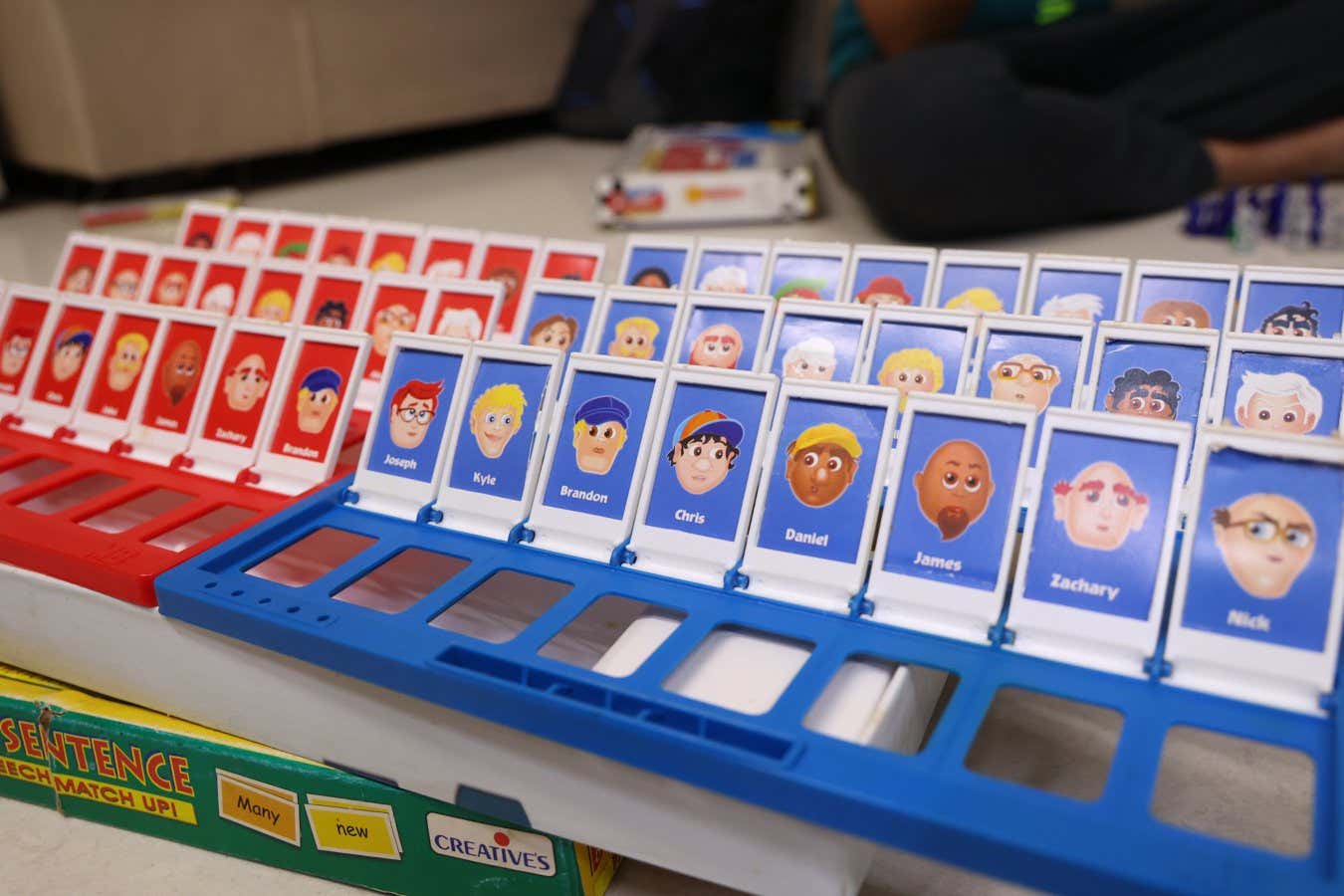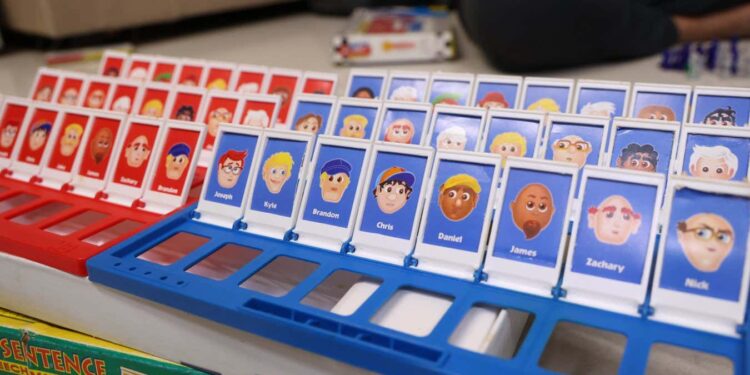
Players must identify one character from a group of 24 in Guess Who?
Shutterstock/Jayanthi Photography
You can maximise your chances of winning the board game Guess Who? if you follow a strategy devised by a group of mathematicians, but it could involve some head-scratching logical conundrums.
In Guess Who?, which was first released in 1979, two players each choose, in secret, a person from a set of 24 unique characters. The players then take turns asking their opponent a yes or no question, or trying to guess the opponent’s secret character.
Many people play a version of the game where narrowing your opponent’s character down to one person results in winning. Mathematicians have previously looked at how best to win this version, which essentially involves asking two-pronged, or bipartite, questions that split your options so that the answer would be yes for half of them.
But the official rules say you can only win by affirmatively guessing the secret character, rather than simply eliminating all the incorrect choices on the board, which increases the mathematical difficulty of finding an optimal strategy for winning.
David Stewart at the University of Manchester, UK, and his colleagues have now devised a method for winning using the official rules. They found that, most of the time, you should use bipartite questions to split your suspects into even or uneven groups, depending on how many remaining suspects both you and your opponent have. Using this strategy, the first player will win, on average, around 65 per cent of the time. However, there are scenarios where you and your opponent have certain numbers of people left when you should take a slightly different strategy.
“It’s very strange in maths, when you have something that appears to be an extremely simple setup — forgetting all the faces, you’ve just got this collection of n things, and you’ve got a collection of m things, and we’re trying to get down as quickly as possible to one. It’s then very surprising to find that there are these exceptional cases,” says Stewart.
To find the optimal strategy, he and his colleagues worked backwards from the simplest possible scenarios, such as each player having two characters left, and calculated the best strategy for each case, working their way up to far more complicated scenarios, through a process called mathematical induction. They also created an online game where you can practise the strategy described in their study.
The team found that if you have either four, six or 10 players left on your board, and your opponent has four left on theirs, you should follow special rules, such as asking questions that split your four options into one and three. This is a more risky strategy, but in these scenarios, the reward outweighs the risk.
“It’s very interesting that for a game that probably intuitively feels very random who wins, it is not necessarily the case,” says Daniel Jones at the University of Birmingham, UK.
Stewart and his colleagues also found an even quicker way to win the game, which involves embedding a logical paradox in the second part of a two-pronged question, such as “does your person have blond hair or do they have brown hair and the answer to this question is no?” If the person has brown hair, the opponent can’t answer yes or no, because the answer to the question contradicts itself. The player asking this question gets more information than they would have with a typical bipartite question – although this would bend the rules requiring all questions to have a yes or no answer.
While this approach might work for professional mathematicians and computer scientists, it would be difficult for amateurs, says Brian Rabern, a software engineer who first came up with the trick. “It would take a little bit of work and training,” he says. “In some sense, you can think through each step of it and it’s not that difficult. It’s just holding it all in your head at once that gets a little bit difficult, but each step is itself pretty straightforward.”
Topics:
Source link : https://www.newscientist.com/article/2491871-mathematicians-have-worked-out-the-optimal-strategy-for-guess-who/?utm_campaign=RSS%7CNSNS&utm_source=NSNS&utm_medium=RSS&utm_content=home
Author :
Publish date : 2025-08-11 14:00:00
Copyright for syndicated content belongs to the linked Source.














